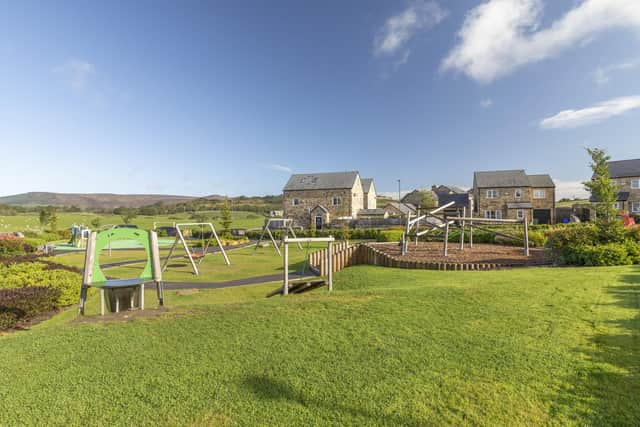Why council tax and stamp duty reforms should be on the agenda
“Council tax is a hot potato at the best of times; how ever one looks at it, some form of revenue-generating tax to pay for essential services is a
necessary evil,” says Yorkshire prime estate agent Ben Pridden at Hewetson and Johnson. “I don’t have any constructive solution I’m afraid. If I had the answer I’d be sitting in Westminster and be a very popular man.”
Advertisement
Hide AdAdvertisement
Hide AdThe fact that there is no easy answer to this well-entrenched system is often cited as the reason why successive governments have failed to get


to grips with reform.
“Reviewing how residential properties are taxed in the UK is long, long overdue,” says Nick Whitten, head of UK Living Research at property consultancy JLL, which has an office in Leeds. “Council Tax is based on residential values from 1991, which is a poor reflection of the current market.”
Council Tax is a ‘progressive tax’, so the higher the home is valued, the more is paid. However, in areas such as Yorkshire, where huge economic and social forces have influenced the market over the last 30 years, this leads to inequitable situations.
For example, homeowners living in a Band D (the most common Council Tax band) house in Rotherham where the average sold property price is £174,711, according to Rightmove, are ranked the same as those living in Skipton, North Yorkshire, where the average sold price is £250,098.
Advertisement
Hide AdAdvertisement
Hide AdHowever, many properties in such prime areas, such as a four-bedroomed detached house in Skipton currently on the market with Dacre Son & Hartley for £575,000, pictured, cost much more.
Skipton is at number five in the top 10 of the UK areas with the biggest house price increase, 20.4 per cent in 2021/22 according to research by money.co.uk.
The ‘progressive’ nature of Council Tax has come to a full stop and only new-build properties are valued from scratch.
There are felt to have been many discrepancies with original valuations, and, at micro level, certain postcodes have fallen out of favour or gone up in popularity since 1993, factors which impact on current value.
Advertisement
Hide AdAdvertisement
Hide AdAs Allan Wilen, economics director at Glenigan, a national construction firm, points out, “Originally when Council Tax was introduced there was supposed to be a revaluation of properties every five years, but successive governments have deferred them.”
Although homes occupied by only one adult qualify for a 25 per cent discount on Council Tax, there is also the issue of the levy being a blanket tax which does not take into account the rise in single person households in the last three decades.
As council tax bills for 2023-24 drop through letterboxes this month, we are also reminded that this levy, introduced by John Major’s government in 1993, Margaret Thatcher’s personal poll tax sparked riots, costs more every year.
“Paying per person is the fairest way but I can’t see any government rushing to bring back Poll Tax,” says property expert and property buyer Jonathan Rolande, who adds that it is potentially unfair that a single widow in a family home, for example, must pay 75 per cent of the sum a family of five are paying next door: “This Budget would have been an opportunity to reform but to do so is expensive and potentially controversial, there would be losers as well as winners. It is easy to see why they chose to ignore it.”
Advertisement
Hide AdAdvertisement
Hide AdIn North Yorkshire, for example, for 2023/24 the average Band D charge has been set at £1,759.96, an increase of 4.99 per cent on the charge for 2022/23.
Some experts argue that the way to reform is through subtle change not complete scrappage. Jeremy Leaf, former RICS Residential chairman, would like to start with a revaluation of properties in England (Wales already reassessed in 2003) and adds: “Expediting the council tax revaluation so we're all paying our fair share with higher charges for second homes used for holiday purposes, would raise additional funds.”
Almost all, including Tom Bill, head of UK residential research at Knight Frank, estate agency, agree that twin reform, of both Council Tax and Stamp Duty at the same time, makes sense.
“A transaction tax is not an efficient way of taxing property and can be an obstacle to social mobility,” he says. “A fairer and updated Council Tax system could replace Stamp Duty altogether, generating an equivalent but more reliable source of income for the government.”